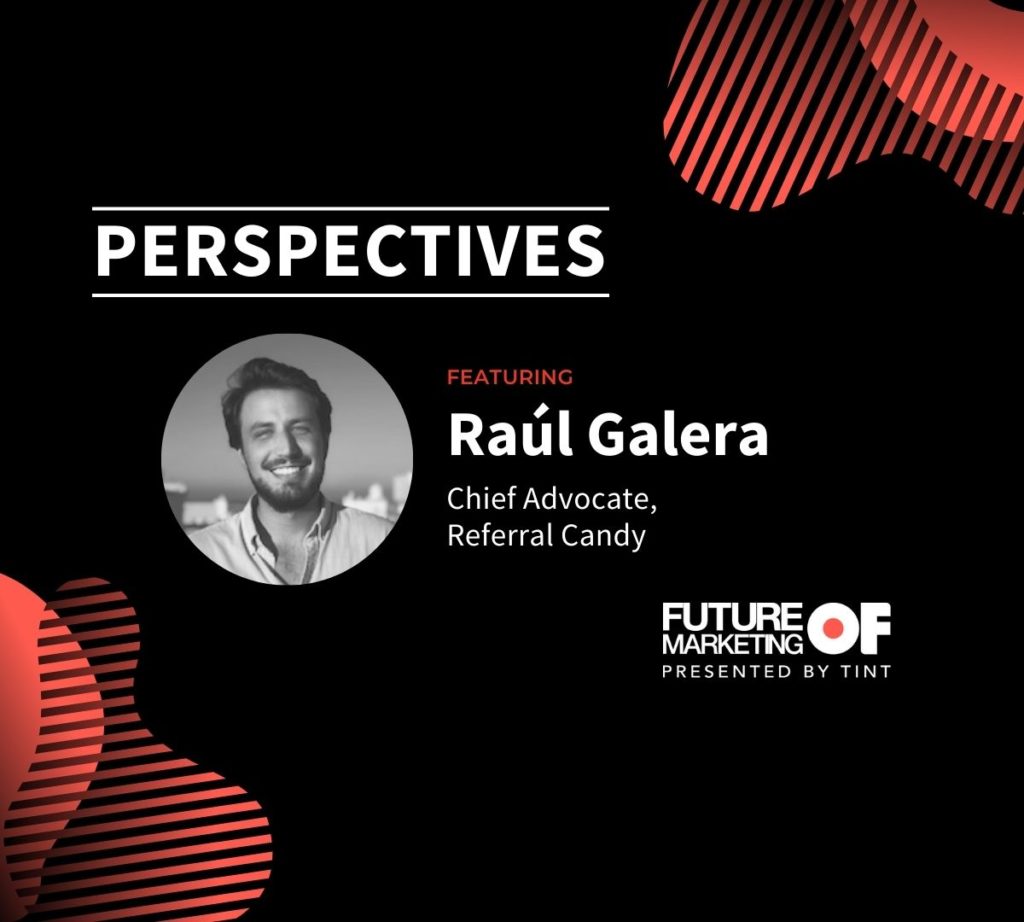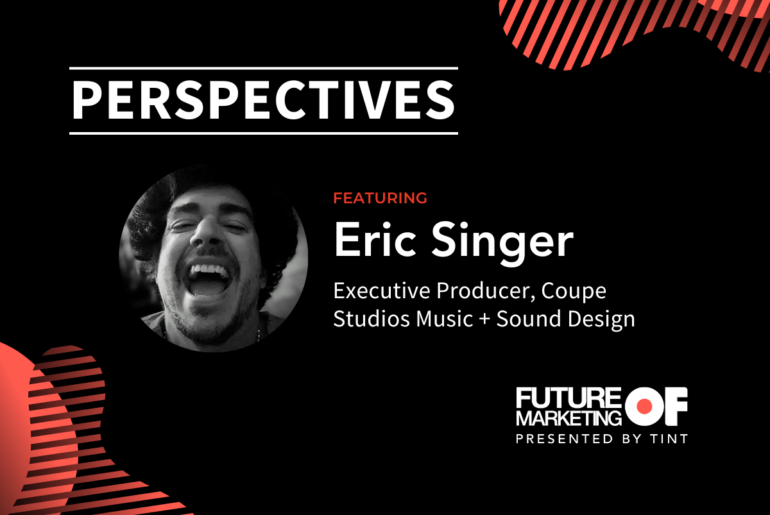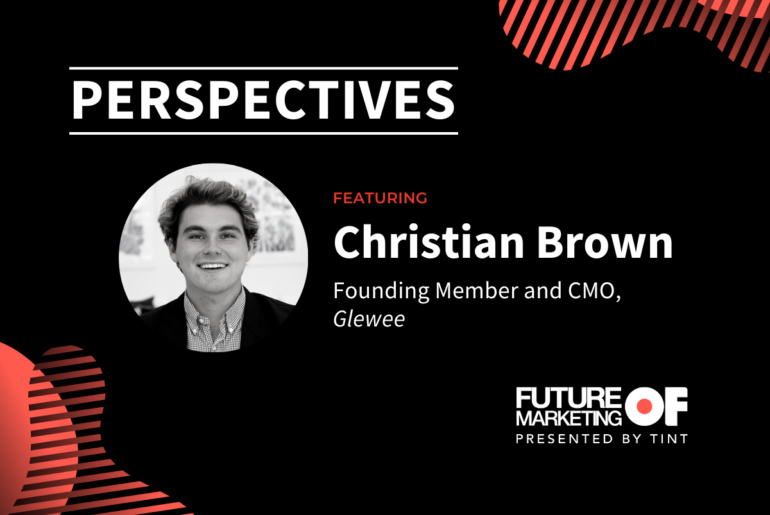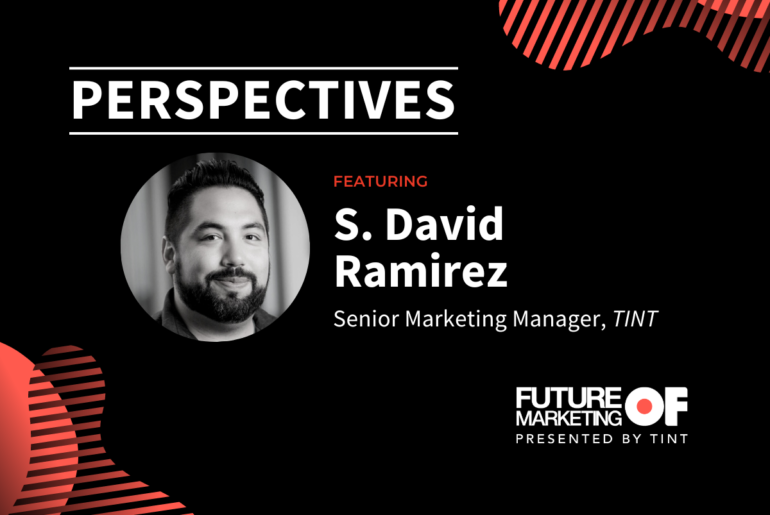
Perspectives is a series uncovering routines, inspiration, and insights by brand leaders shaping the future of marketing around the globe.
EDITOR’S NOTE: Raúl Galera is the Chief Advocate at Referral Candy, an app that helps eCommerce brands launch and run customer referral programs. In his words, Raúl shares his perspective on:
- The importance of incentivizing fans
- How to approach problems or mistakes
- Why adding value builds trust
What do you do for a living? What does your typical day look like?
My job is to oversee all the partnerships we have at the moment, mostly with eCommerce agencies.
We work with many agencies that are using our product for their clients, but we also collaborate with a lot of other companies in the eCommerce space (like other SaaS companies). My role is to manage them and make sure that we’re always coming up with something new.
What blogs and websites do you follow?
Most of the content that I get is from Slack communities that I’m on – whether it’s from our own company, for marketers, partner managers, Shopify. I get most of my content from there, or from the news. I like to read the news.
What’s your favorite Slack community?
I would say Partner League, which is a community for Shopify partners.
What’s something that you’ve learned in the last year?
In terms of eCommerce, a lot of companies have started to realize there’s a lot more competition in the space. And something interesting that I learned is that companies started to look more at ways to retain clients rather than continue with this growth-at-all-costs mentality.
Obviously, growth is still really important and needs to be part of any commerce brand strategy – but also focusing on retaining your customers, making sure that they’re okay, staying longer, that they’re not considering your competitors, and are coming back to your store. It’s becoming increasingly important.
Even from a financial perspective, it just makes a lot more sense for a brand to retain those clients.
How do you think people can do a better job or marketers can do a better job at retaining their customers with social media?
One thing that I feel changed a lot in the past few years is how social media went from a sales channel to a content channel.
Many brands have realized they can do a better job at selling what they’re selling just by offering free content and interesting content to their clients… rather than blasting promotions sales-related content.
That’s one thing – just provide useful content or something interesting to your followers.
The other one is a trend that I’ve been following for the past few years (and I think now it’s probably more important than ever), which is building a community around your brand.
A lot of brands are realizing that their customers have one or two things in common. Whether it’s a hobby or interest, or even some sort of political interest – they’re creating communities for all these customers and followers to get together and share their ideas.
Community-building plays a great role in social media and all their platforms as well. It kind of falls in the same category that I just mentioned, which is providing something useful. If you’re creating a community for people that are like-minded and can share ideas… you’re offering value and allowing people to generate content.
Providing value at the end of the day is the one thing, the one outcome, that brands should keep in mind, rather than what it used to be before – treating social as a more traditional, pushy sales channel.
What do you think marketers and brands need to stop doing on social media?
Looking at social media from a perspective of let’s post something and see how much revenue we get or how much ROI can we drive from this right away is probably the wrong approach.
From a value-delivery type of channel, you know the one thing that customers like to see is definitely not a coupon code or some sort of promotion. Sure, pushing that from time to time helps and you’ll see results from that, but they’re likely not following you for that reason.
What’s the one thing that they like… is it outdoors? Sports? Whatever the type of content that your followers like to see, read, or just watch… generate that type of content. And then you’ll make sure to stay top of mind, which at the end of the day, is the most important thing. As long as you stay top of mind, whenever the shopping need arises, you’ll come up there.
Why do you think incorporating the voice of your customers (UGC) is important? Why do you think it’s a key driver to getting other people to participate?
There’s no better salesperson or marketer than a customer. They’re such a good salesperson in the sense that they’re the audience that they talk to. They don’t sound salesy or like they’re selling your product, and they’re making a legit recommendation.
If they like your product, they’re probably going to recommend that no matter what. But if you have some sort of incentive as well, that’s going to make it even easier for them to go out and share – and they believe in your brand and your products so much that they’re willing to pay for it.
That should be an indicator that customers are really good salespersons.
Again, if you have a good product, a good shopping experience, and if your customers are happy, they’re going to refer. It’s just a matter of how easy can you make it for them to go out and share, and also how easy or how attractive can you make it to their friends?
They are incentivized to make that first purchase and try the product for themselves.
Is there something in marketing that you disagree with?
I think marketing applies to pretty much everything and what I do – but at the end of the day, my position is more of a mix between sales and marketing. Part of management, too.
I think a lot of us who work either in marketing, sales, management, or business development tend to think that we approach partnerships in a way that we measure it wrong…
When we approach a partnership, we would typically think, what can we get out of this? Which sure, when you approach any marketing or sales channel, that should be the ROI.
But…
How much are we generating? Are we going to generate from this? What’s going to be the ROI of this partnership? or marketing channel or whatever it is.
But that sometimes leads us to forget that we also have to give a little bit on our end, or that a long-term partnership is going to work well if you’re willing to give something (and before you even receive anything).
Assuming that just because you’re doing some sort of marketing action or partnership campaign, you’re going in with the attitude of what can I get out of this without even considering what you are willing to give before you see any results.
I think that’s probably something I definitely disagree with.
What do you think the future of marketing is going to look like?
More involvement. It’s going to be more than involvement – from the brand and in terms of how they connect with their audience.
Something I mentioned earlier is community-building. That’s something that’s definitely going to become more normal for brands that need to engage with their customers from more than a product perspective.
With so much competition in the space, brands are going to have to figure out a way to differentiate themselves from pretty much any other competitor that they might have. And right now, I don’t think there’s a single eCommerce vertical that doesn’t have thousands of competitors.
So, you really need to differentiate yourself.
How do you differentiate your brand?
You can come up with these differences from a product perspective and that definitely gives you an advantage – but for industries that might not be easy to do without innovation, simply putting yourself out in a whole different perspective.
Most brands are going to have to differentiate themselves in terms of how we connect with our customers. And also what we believe in really as a company, what kind of company, mission, and company values we have – and making sure that our customers understand and agree with those values.
I always share the same example with Patagonia. In the past few years, they got extremely political – and that’s something that, in the beginning, was kind of seen as a mistake because if you put yourself on one side of the spectrum, people who are on the opposite side are going to “hate” you or are going to leave you. If you’re a brand that’s selling products, they’re probably gonna stop buying those products.
But it actually worked out really well for Patagonia – and it worked because all of their customers happen to believe in the same company values. They were pretty much siding with their customers.
At the same time, they were making a strong statement and were not afraid of putting their thoughts out there, and it was legitimate. It wasn’t a marketing tactic. They weren’t just trying to come up with some idea to support just for the marketing benefit of it.
They had a strong belief in those values and their customers happened to share those. So, again, it doesn’t have to be citing yourself on a certain political belief, but you are going to have to figure out a way to make sure that your customers understand why you exist as a brand.
What made you start that brand? What makes you the best company?
The more value you can add to your customers will play very well for you in the long run – when these customers are considering your option versus competitors.
What is a book or a podcast or a person that inspired you or shaped your career?
Through my first year, year and a half at Referral Candy, I was working directly with our CEO and one of the co-founders, and one of the things that I learned from our CEO that shaped me as a professional is how we approach problems or situations that come up that we weren’t aware of (or bad results).
When we face a situation like this, I already know what he’s going to say and it’s typically, How can we prevent this from happening in the future? What can we learn from this?
It’s never negative.
If the result is not what we expected or if something doesn’t get done, or any sort of negative outcome, their reaction is always to learn from it. And that’s something that has helped me to internalize that myself. And now, when something doesn’t come up the right way, I try to follow that thought process and figure out, how can we prevent this from happening again?
And not only in work, but also I try to apply it to my personal life.
In terms of podcasts, there’s pretty much one podcast that I’ve been following for the past, what like five, six years, which is This Week in Start-ups for no particular reason other than I love listening to start-up founders – and it’s just something that I really, really enjoy.
Regardless of their industry, whatever they do, whether I understand what their products are about or not, or whether it’s something that I’m particularly interested in – just hearing founders talk about their startups, struggles, and wins… It’s something that is super refreshing and I love doing it on a weekly basis.
Where do you look for inspiration?
I try to close any screen that I have in front of me – my computer, turn off my phone, whatever it is, and just go outside.
And I’ve realized that, especially last year… I mean, we had a pretty long lockdown here in Spain and I was always outdoors, but having to be at home for so long, made me appreciate being outdoors a lot more. So, I try to take breaks in the middle of the day and that helps me refresh my ideas a little bit.
I usually come up with ideas when I’m either riding my bike, surfing, or just walking – whatever it is that I come up with things that otherwise they would have never crossed my mind if I was sitting in front of my computer and looking at Gmail.
What advice do you have for other marketers or creatives who look up to you?
Going back to what I mentioned earlier about building relationships and giving before you receive anything, and having that attitude of what kind of value can I deliver to this person? Before I even think What am I going to get out of this new relationship?
It doesn’t come naturally to most of us, it’s something you have to work on – but it definitely pays off in the long run. And it also leads to a lot more opportunities down the line.
How do you wind down from a stressful day?
Going outside, really. I work from home, so getting out of the house really helps. This past year I also started trying new things that I hadn’t had before, and I’ve gotten pretty excited about all these new activities.
Whether it’s like taking Salsa classes or surfing or just like riding my bike around the city.
So, anything along those lines…
What are you excited or looking forward to?
On the personal side, traveling again. Going to a few places that I have on my bucket list.
On the professional side as well. I work from Spain, but our company is based in Singapore. Before COVID, I used to travel there about once or twice a year, so it’s been over a year now since my last visit. That’s something I really want to do.
And I’m really looking forward to conferences like Shopify Unite… that kind of thing where you connect with a lot of people (it’s super fun). It’s something I love and it’s super helpful for the professional side.
So, I guess traveling for both business and pleasure.
For weekly insights and more interviews like this, subscribe to Future of Marketing.




